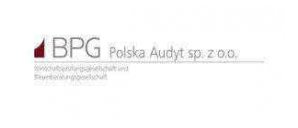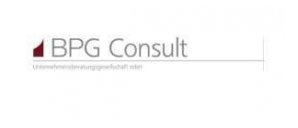
Withholding tax in Poland
New regulations relating withholding tax in Poland
From January 1, 2019, new withholding tax (WHT) rules apply. For many years the obligation to collect this tax has been the subject of heated discussions, both among the tax authorities and taxpayers alike. The former were more active in taking control of the issue, wheras taxpayers have to pay more attention to the accuracy and correctness of their settlements.
Since the beginning of 2019 and the revolutionary changes that were introduced at that time, new problems have arisen in connection with settlements of foreign transactions. These mainly concerned the fact that taxpayers did not know exactly when they should actually levy withholding tax. On December 31, 2018 the Minister of Finance issued a regulation that limited or excluded, for some taxpayers, payers and activities, the application of art. 26 par. 2e of the CIT Act and art. 41 par. 12 of the PIT Act, ie obligatory collection of withholding tax according to the basic rate applicable for payments exceeding PLN 2 million in given year. These obligations have been postponed until June 30, 2019, however, the remaining requirements have been in force since January 1, 2019. What exactly do they concern?
Open catalog of intangible services
Withholding tax is charged for services relating to consultancy, accounting, legal, advertising, market research, data processing, management and control, employee recruitment, other recruitment, guarantees and sureties, as well as other services of a similar nature. This means that all other foreign services are not subject to WHT. The problem, however, is the wording used by the legislator in the last part of this provision: "services of a similar nature". On this basis, it should be concluded that the catalog of services subject to WHT is an open one, and this means that all intangible services should be carefully inventoried, and the payer should precisely seperate the services that are subject to withholding tax.
Payments below PLN 2 million per year
In the event that the amount of "qualified" payments for one recipient does not exceed PLN 2 million per year, the conditions for applying a contractual rate or exemption are the same as those that existed in 2018. Currently, however, when determining whether a reduced rate or exemption is based on a double taxation agreement, the taxpayer must check with due diligence, whether, in the given situation, the reduced rate or exemption actually applies - primarily due to the scale and nature of the business operations involved.
The above reference to due diligence is mainly understood as the taking of action to verify that all formal conditions for applying a withholding tax exemption or a reduced rate of withholding tax have been met. Primarily this refers to the collection of the necessary documentation, thus the tax residence certificate and the taxpayer's statement on the lack of a tax exemption for income earned in another country, as well as checking whether the recipient of the payment has the status of the actual owner of the receivables and storing all evidence of this verification.
Payments above PLN 2 million per year
The application of these principles has been postponed untill June 30, 2019, but from July 1, in the case of "qualified" payments to a single recipient exceeding PLN 2 million per year, the payer will be required to collect withholding tax on the surplus over PLN 2 million at the applicable standard rates, ie 20% for intangible services. This means that in such cases the reduced rate or exemption resulting from the double taxation agreement will not apply. It is possible to avoid this obligation based on an opinion on the application of the exemption (which can be issued only in certain cases) or by submitting a statement confirming that the conditions required for the application of the exemption have been met.
Tax refund
It is possible to apply for a tax refund if the tax has been paid from the taxpayer's own funds and he himself has borne the economic burden of this tax. The tax refund application should include:
- a statement on the truthfulness of the information contained in the application,
- a statement on the compliance of the documentation attached to the application with the original documentation .
The application is considered by the tax office, which issues a decision within six months from the date of the submission of the application. This period may be extended if the application can not be evaluated within six months.
return











